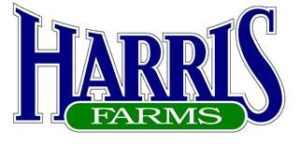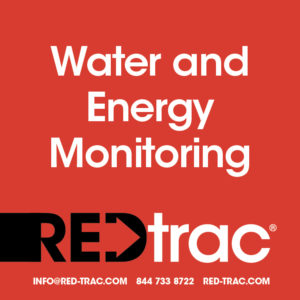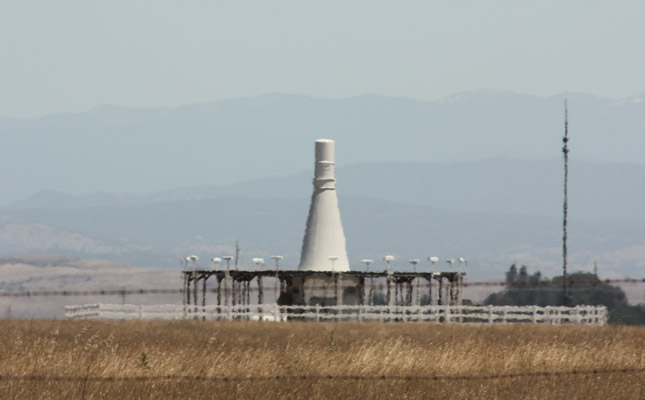The Advisory Committee for the Madera County GSAs met via Zoom on November 12, 2020 beginning at 9:07 a.m. Stephanie Anagnoson, Director of the Department of Water and Natural Resources for Madera County, read the rules for digital participation, then Chairman Devin Aviles called the session to order and led the Pledge. The roll call taken by County Attorney Mike Linden showed 10 members and alternates in attendance out of 11 seats. Chairman Aviles read the rules for public comment.
Joseph Gallegos spoke in the public comment section. He represents a water technology company and asked how he can present his company’s technology or other new technologies. The response was that he should contact Ms. Anagnoson outside the meeting; this body is not a technical advisory group.
In her director’s report, Ms. Anagnoson reminded the group that the County Supervisors meet as the GSAs board of directors at their second board meeting of each month at 10:30 a.m. Agendas are available on the county website along with a connection that allows the meetings to be streamed.
She reported that GSA administration fees appeared on October tax bills and an appeals  process has been established. Raftelis, the national consulting group with branch offices in Southern California, is studying the costs and the necessary rate fees for the GSP actions. There is a new data management system, shared by Madera and Chowchilla subbasins, which will create the annual GSP reports.
process has been established. Raftelis, the national consulting group with branch offices in Southern California, is studying the costs and the necessary rate fees for the GSP actions. There is a new data management system, shared by Madera and Chowchilla subbasins, which will create the annual GSP reports.
The update on the grant for a possible water market will be given at a meeting on Dec. 1 at 3 p.m. A meeting had been held with the satellite measurement company, Irriwatch, measuring water usage on cropland. The next session will be January 20, 2021 as a workshop for landowners. Land easement studies with landowners are underway to determine what incentives might be needed to encourage land to be taken out of production.
She said the compiling of data for the domestic well inventory for Chowchilla Subbasin being funded by Proposition 68 is about done. In the Madera Subbasin, she is working with other six GSAs to retrieve information about the inventory of existing domestic wells. She explained that as part of flood control agency work, landowners can get sediment from Ash Slough if they contact her office and file the necessary forms. She concluded her report saying property owners who might be interested in providing land for recharge basins have been notified and that she has had a meeting with smaller farmers about the planned allocation system.
Committee members were given the opportunity to ask questions. Madalyn Harris of the Leadership Council asked about data collection on domestic wells. She asked if Prop 68 provides funding for domestic well replacement as well as doing the inventories. The answer was no, the funding is only for gathering information and installation of monitoring wells. Once the inventory of wells is known, costs can be estimated for remediation of problems and new funding may be available.
Committee member Angela Islas asked the purpose of the water market meeting. The response was that it provided an opportunity for potential users to take part in some sample market activities to better understand how a market might work.
A member of the public asked if the admin fee on the tax bill was based on planted acres or total acres. The response was that the fee was based on assessed acreage from assessor’s office. The fee schedule will be reevaluated after the completion of the Raftelis study.
A webinar meeting with the satellite company, Irriwatch, had been held on November 6. The recording is not yet posted but is available by contacting Ms. Anagnoson’s office. There is also a YouTube video and a podcast which will be posted on the county website shortly. The slide set is already on the site.
The most important agenda item was the recommendation for an allocation framework that the Committee will make to the Board. It was in the form of a resolution which was presented for discussion and action. The various aspects of this work are what the committee has been focused on at its meetings since late spring.
Attorney Linden reviewed the legal framework provided by SGMA. Ms. Anagnoson and consultant Greg Young reviewed key points documenting that since 2010, water usage has been increasing due to additional plantings of trees. The consumptive use of water in the subbasin exceeds the sustainable yield with four undesirable results which must be mitigated over 20 years by the actions identified in the three GSPs. They are lowering groundwater levels, reduction of groundwater storage, land subsidence and water quality degradation.
The plan will create two “buckets” of water… sustainable yield of 0.5 acre feet per acre across the subbasin and the transitional ground water which will be reduced by two percent per year for five years and six percent per year for the next 15 years. While the search for recharge water will be ongoing, the real issue is demand reduction. No specific allocation of transitional water is included in the GSPs or in this resolution. Fees are being charge for the costs of the system.
Ms. Anagnoson then reviewed the draft resolution which included seven statements providing background (the “whereas” statements) and five recommendations (the “be it resolved” statements.)
Attorney Linden explained that the Advisory Committee resolution, if approved, would be submitted to the County Board which in turn would be able to accept, amend or reject it. But no matter the disposition, the resolution fulfills the role of the Advisory Committee, he said.
The resolution accepted by the Advisory Committee as amended appears at the end of this report in its final form. But the discussion from the committee members and the public highlight points of concern so we are including highlights in the following paragraphs.
First, committee member comments were invited.
Clay Daulton, committee member representing residential, asked if the uptake of water has been on per acre basis. Greg Young replies the GSP on average documents 2.25 to 2.5 per AF overall of consumptive use, with a variation based on crop. Madalyn Harris asks if the sustainable yield has changed over consideration of GSP? No, it’s been about the same. Then she asks if farm unit zones are still there? The term “zones’ doesn’t appear in the resolution, but the Board would consider them. (The “zones” are sections within the subbasin for farming operations to be able to opt into the program.) Greg Hooker, alternate non-permanent ag member, asks why you would pay for sustainable yield pumping. Anagnoson said the rate consultant, Raftelis, will consider all costs but may put most of the project costs on transitional water.
Non-permanent ag member Bryant Elkins observes that if water use of 2.5 AF and sustainable yield is 0.5, that is an 80% reduction over time. He said if we bring in additional supplies, the sustainable yield could increase, but native groundwater wouldn’t change. Consultant Young commented that in the Madera subbasin, roughly 200,000 AF are used for farming now, but not all this acreage may opt in to bid on the transitional water, reducing consumptive use.
Permanent Ag member Jim Maxwell referenced the key principals of the allocation approach as listed in the resolution. He recommended adding statement about how the committee has tried to deal with demand reduction in a way that is least damaging to the economy, industry and employment in Madera County. He also said he thinks we should all costs should be put against transitional water to make it more palatable. He also suggested that farm unit should not just say “owned” but also land operated in comment, covering leases and management contracts. Finally, he recommended the private company, Irriwatch, not be named specifically but instead, use the term third party contractors or a similarly neutral term in case vendors need to be changed.
The discussion was then opened to public comment which the Committee wanted to hear before making any decisions.
One questioner asked about how much transition water is being considered for East and West Zones. Consultant Young said the amounts are the same… two percent per year for five years, and then six percent after that.
Bill Diedrich asked what amount is reduced by two percent for an individual grower? Young said that the “bucket” of transitional water will be reduced by two percent annually but that does not reflect what any individual might want to do. He said the first step is that growers opt in for the program. Then there will be a transitional water bucket allocated in two pools, percent and then the remainder that can be bid on. You fill your farm bucket and if there is a water market you may bid on water market. The effort is to try to give property owners options to run their businesses.
Diedrich said the next item needed is the rate study so we know the costs. When will that rate study be ready? Answer, late 2021. It will include recharge arrangements and costs. These rates will be set in a public process and then there will be a 218 vote so that property owners can approve the rates.
Geoff Vanden Heuvel, listening in for the Milk Producers Council, said he thought the changes recommended by Maxwell were good ones.
Jack Rice commented that the resolution does a good job, but it leaves some details to be determined in the future. He wanted to emphasize how important those details are. He said maybe it would help if some wording were added to describe how those details will be determined.
Public comment closed at this point at 10:35 a.m. and the committee resumed discussion.
Jared Samarin, the Delta-Mendota member said he didn’t think the resolution should not specify that the program costs would be attached to sustainable yield water, agreeing with Mr. Maxwell.
Harris agreed with Mr. Maxwell on his statement that the Committee should state that it had tried to consider the needs of the citizens and economy of the county. She suggested including the term “equity” in the listing of the principles of the program.
Daulton asked if water users will be considered future opt-in sellers? Consultant Young said one of the considerations is that you can only be in a water market if you opt-in to the program and then there is only sustainable yield water is the market.
Vanden Heuvel was recognized and said that having a charge on sustainable yield water provides an incentive for people to opt out if they don’t need to use the water.
There was discussion about the Committee’s need to act on a resolution. Anagnoson said she was charged to get something to County Board by end of year (2020). “There is a fair amount of urgency here,” she said, since the Board wants something by its December meeting. The Committee’s December meeting is too late to put something to the Board.
She noted that while the resolution was just now being seen by the Committee, the  concepts have been discussed for six months. Attorney Linden said that resolution could be amended by a committee member, and so Mr. Maxwell proposed approval with some of the changes that had been discussed.
concepts have been discussed for six months. Attorney Linden said that resolution could be amended by a committee member, and so Mr. Maxwell proposed approval with some of the changes that had been discussed.
It was agreed to take a 15-minute recess so that Anagnoson could create a document with the suggested changes that could be shown to every on Zoom. The meeting was called back in order at 11:10 a.m. The document was reviewed with its changes highlighted.
The amended resolution was moved by Mr. Maxwell and seconded by Ms. Harris. A roll call vote was taken with all in favor except Mr. Elkins. It was declared passed by a 9 to 1 vote and will be forwarded to the County Board.
Chairman Aviles thanked the staff for their diligent work, the committee members for their considerations and the public for its participation. Considering the approval of the Resolution it was stated that the December 3 meeting likely wouldn’t need to be held.
With that the meeting was adjourned at 11:22 a.m. with holiday wishes extended by the chair.
Here is the link to the final approved resolution as posted on the Madera County site…
https://www.maderacountywater.com/wp-content/uploads/2020/11/MCGSAAC-Resolution-2020-November-12.pdf
DISCLAIMER OF RESPONSIBILITY; Waterwrights strives to provide clients with the most complete, up-to-date, and accurate information available. Nevertheless, Waterwrights does not serve as a guarantor of the accuracy or completeness of the information provided, and specifically disclaims any and all responsibility for information that is not accurate, up-to-date, or complete. Waterwrights’ clients therefore rely on the accuracy, completeness and timeliness of information from Waterwrights entirely at their own risk. The opinions expressed in this report are those of the author and do not represent any advertisers or third parties.
ALL RIGHTS RESERVED. Copyright 2020 by WaterWrights.net
Madera County is comprised of three subbasins, designated by the CA Department of Water Resources as critically overdrafted, and “high priority”: (1) the Chowchilla Subbasin; (2) the Madera Subbasin; and (3) a portion of the Delta-Mendota Subbasin. Each of these subbasins submitted a Groundwater Sustainability Plan (GSP) by January 31, 2020. These subbasins are required to achieve “sustainability” by the year 2040. The method by which sustainability will be achieved will be illustrated in the GSP, which was be drafted in partnership by the irrigation district, water districts, cities and Madera County.
The Madera County Groundwater Sustainability Agency (GSA) is administered by the Madera County Department of Water and Natural Resources: Stephanie Anagnoson, Director, 200 W. Fourth Street, Madera, CA 93637, (559) 675-7703 x. 2265 or (559) 675-6573
The GSA Advisory Committee Members for 2020 are as follows (organized by name, subbasin, and representational group): Albert Guravage, Non-Permanent Ag- Alternate, Al Solis, Residential- Alternate, Ben Pitman, Livestock- Alternate, Bryant Elkins, Madera -Non-Permanent Ag, Clay Daulton- Residential, Clay Haynes- At Large, Devin Aviles, Madera- Permanent Ag, Darcy Volt- Livestock, Greg Hooker, Non-Permanent Ag- Alternate, James Unit, Permanent Ag- Alternate, Jared Samarin- Delta-Mendota, Jay Quick, Residential- Alternate, Jerry Kazynski- Residential, Jim Maxwell, Chowchilla- Permanent Ag, Karun Samran, Permanent Ag- Alternate, Larkin Harman, Chowchilla- Non-Permanent Ag, Leadership Council, DAC- Alternate, Mike DeLaGuerra, At Large- Alternate, Sam Lopes, Delta-Mendota- Alternate, Self-Help, DAC- Alternate, Teresa Mendoza- DAC, Vicki Ortiz- DAC































